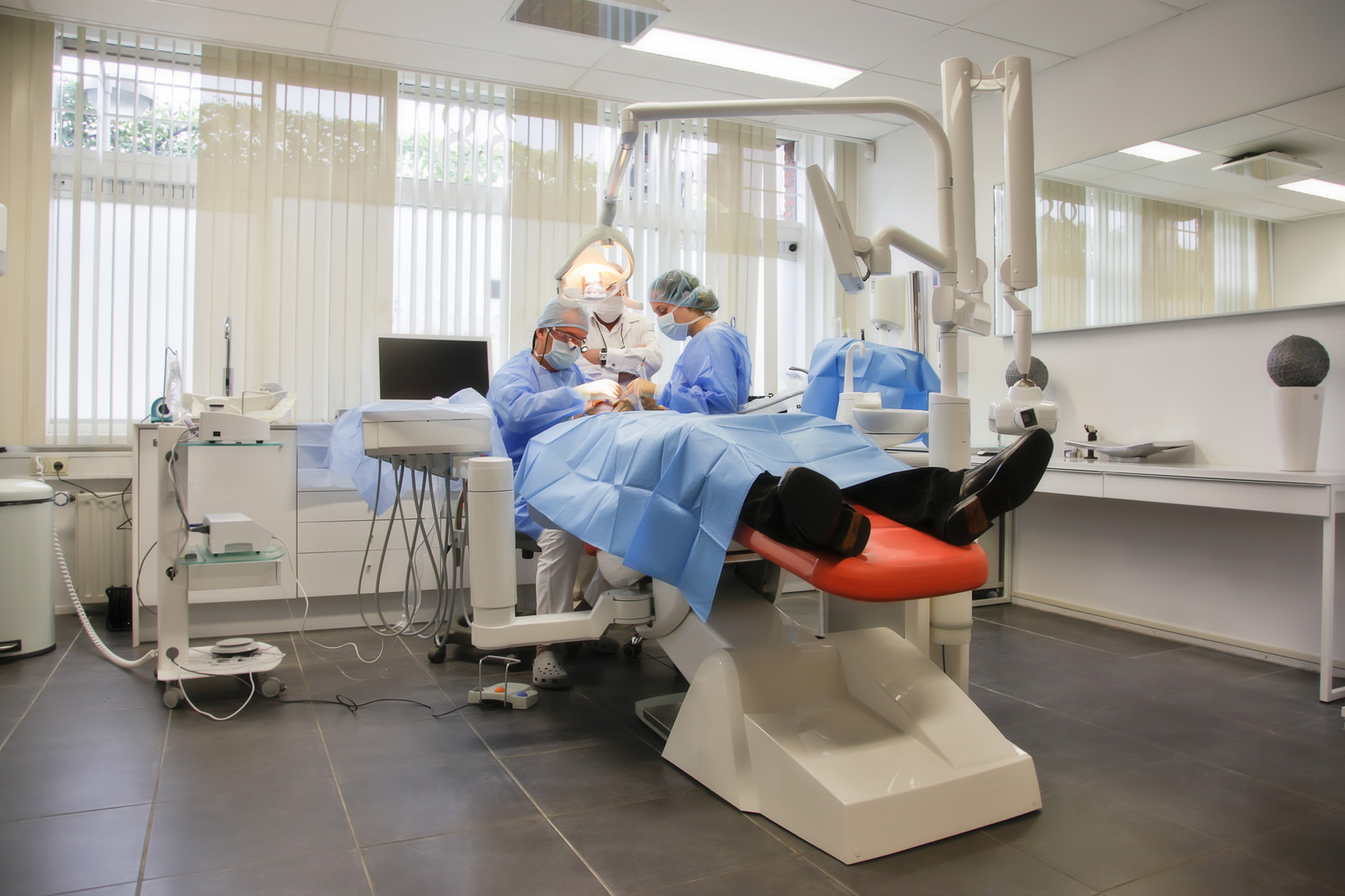As the name makes clear, periodontal surgery is a dental operation used to treat advanced periodontitis, also known as gum disease. This is a common dental issue that develops when plaque and bacteria accumulate around the teeth and gums, causing swelling and infection. It can seriously harm the teeth, surrounding tissues, and bones if it is not addressed correctly and quickly.
If non-surgical procedures like scaling and root planing (deep cleaning) are ineffective in treating the advanced stage of gum disease, a dentist or periodontist (a dental expert who concentrates on treating gum disease) may propose surgery.
Periodontal surgery comes in a variety of forms, including:
- Flap surgery:
To eliminate plaque and tartar accumulation, the gums are pulled away from the teeth and the underlying bone during flap surgery. After that, the gums are sewn back into position to encourage healing. - Bone grafting:
To repair damaged bone surrounding the teeth, artificial bone or bone taken from another region of the body may be used. This aids in encouraging the development of new bone and supporting the teeth. - Guided tissue regeneration:
In order to stop the growth of unwelcome tissue and encourage the creation of new bone and gum tissue, a specific membrane is placed between the gums and the bone. - Soft tissue grafting:
To conceal exposed tooth roots and enhance the look of the gums, gum grafting near you includes removing tissue from the roof of the mouth or utilizing donor tissue.
Usually done under local anesthesia, this particular treatment may take several visits to complete. Patients may endure some discomfort and bleeding following surgery. Detailed advice on how to care for your mouth following surgery will be given by your dentist or periodontist, who may also issue any necessary prescriptions for painkillers or antibiotics.
Am I a Candidate for Periodontal Surgery?
It’s crucial to visit a periodontist near you for an assessment if you have symptoms of gum disease, including bleeding gums, foul breath, or loose teeth. They are capable of determining the extent of your gum disease and deciding if periodontal surgery is required.
You may be a candidate for periodontal surgery if you have any of the following characteristics:
- Advanced gum disease:
Periodontal surgery may be required to remove the diseased tissue and encourage healing if you have advanced gum disease, which is characterized by severe bone loss and deep pockets around the teeth. - Gum recession:
Surgery may be required to repair the gum line and stop future damage if you have gum recession, in which the gums move away from the teeth and expose the tooth roots. - Loose teeth:
Periodontal surgery may be required if you have loose teeth as a result of gum disease in order to stabilize the teeth and stop them from coming out. - Other factors:
Additional factors that may suggest you are eligible for periodontal surgery include smoking or tobacco use, a family history of gum disease, or certain medical disorders that might raise your chance of developing gum disease.
Schedule a consultation with a dentist or periodontist if you have concerns about your gum health or believe you could be a candidate for periodontal surgery. They can help you achieve optimal oral health by recommending suitable treatment solutions based on your unique requirements.
Visit our Okanagan Periodontics
Periodontal surgery may be required as a treatment option if you have severe gum disease in order to prevent additional harm to your teeth, gums, and bone. We provide a variety of periodontal surgery techniques, such as gum grafting in Kelowna to support oral health restoration and guard against future dental issues.
At our local dental office, our staff is dedicated to assisting you in achieving excellent dental health and a stunning, self-assured smile. Contact us today to schedule a consultation and learn more about how our periodontist in Kelowna can help you with all your needs.

